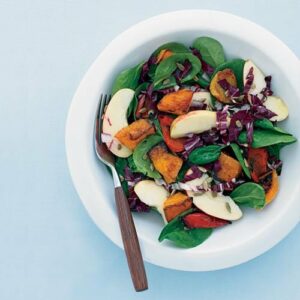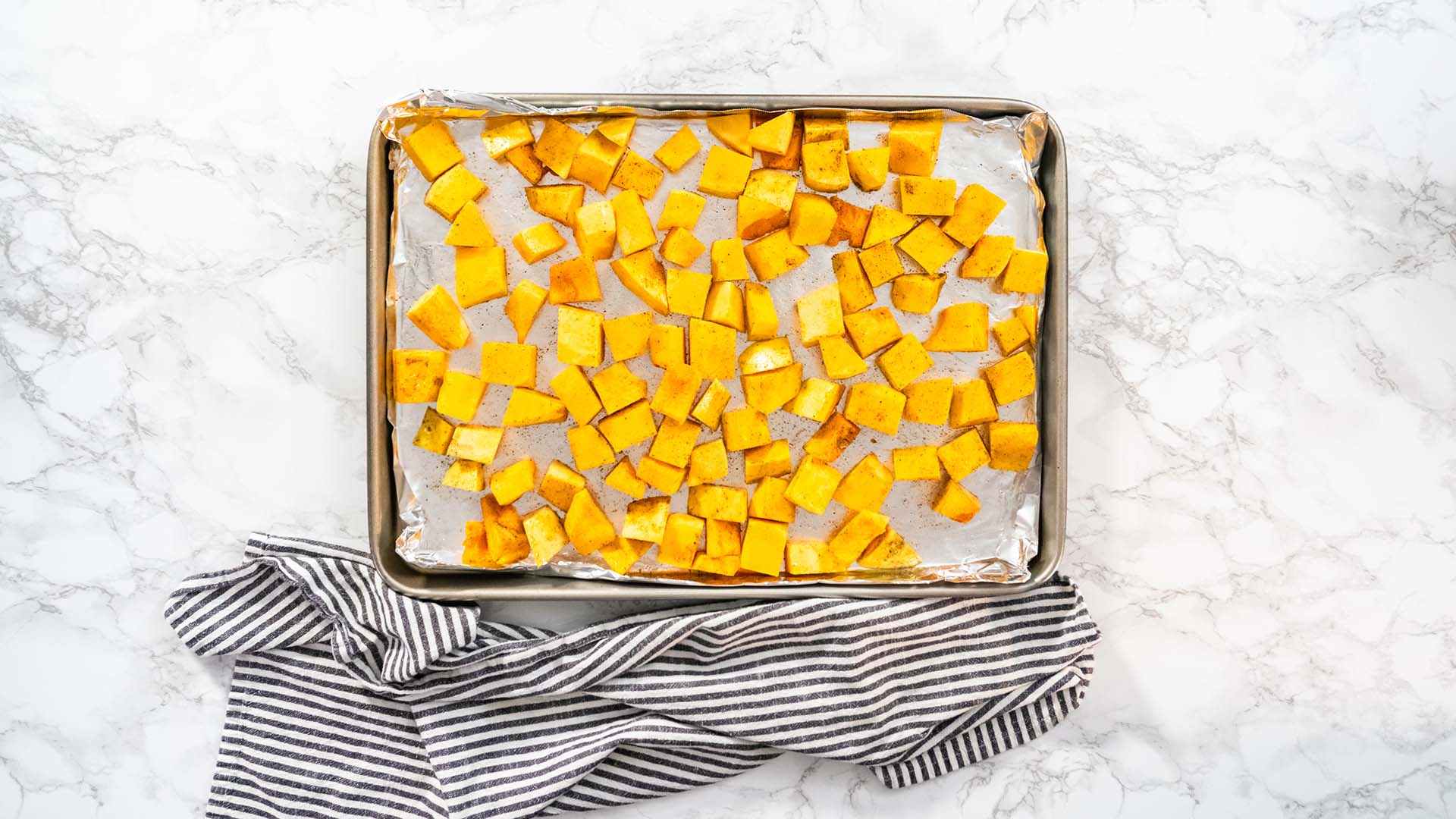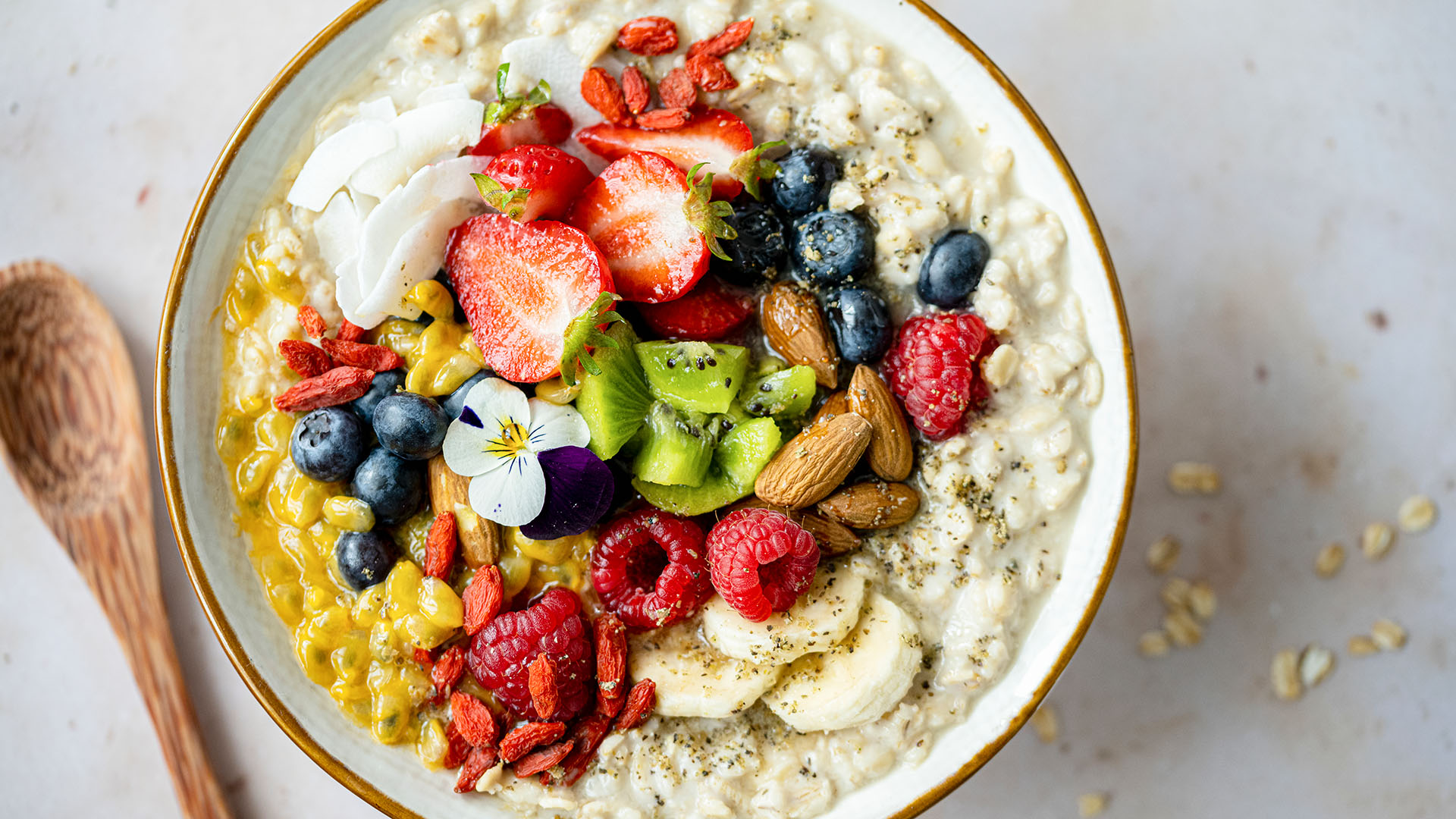For anyone seeking a nutritious, satisfying lunch that’s both low in fat and rich in fibre, the roasted butternut and spinach salad is a top contender—especially in Nigerian or West African settings where wholesome vegetable-forward meals are gaining popularity. This filling salad delivers lasting energy, ideal for busy afternoons or when you need a natural pick-me-up. If you’re looking to give it an extra protein punch, try tossing in some grilled chicken breast or add about 30 grams of crumbled feta cheese. Both of these pair beautifully with the sweet notes of butternut and the earthiness of spinach, a combination that is especially satisfying in our warm African climates.
High-Fibre Roasted Butternut And Spinach Salad

High-Fibre Roasted Butternut And Spinach Salad
Ingredients
- 200 g Butternut cubes about 2 cups cubed
- ½ medium apple cut into pieces
- 1 large bell pepper cut into pieces
- 2 Tbsp extra virgin olive oil
- 1 tsp chopped thyme
- 2 tsp honey
- ¼ small red onion chopped
- 4 cups loosely packed spinach
- 1 Italian Chicory or red cabbage
- ½ cup unsalted sunflower seeds
- 2 Tbsp fresh lemon juice
- ½ tsp salt
- ½ tsp black pepper
Instructions
-
Preheat your oven to 220 degrees Celsius. Prepare a baking sheet by spraying it lightly with olive oil cooking spray for healthy roasting.
-
In a medium bowl, mix together the butternut cubes and bell pepper pieces with 2 teaspoons of olive oil, chopped thyme, a quarter teaspoon of salt, and a pinch of freshly ground black pepper. Toss until all pieces are well coated.
-
Spread the vegetables evenly on the prepared baking sheet in a single layer. Roast the mixture for 25 to 30 minutes, stirring every 10 minutes or so, until the vegetables are soft and slightly charred at the edges. Remove from the oven and allow to cool for about 10 minutes.
-
In a large mixing bowl, whisk together the fresh lemon juice, honey, remaining olive oil, a quarter teaspoon salt, and a dash of black pepper to create your dressing.
-
Add in the chopped red onion, spinach, apple, cabbage (or Italian chicory), sunflower seeds, and the cooled roasted vegetable mixture. Toss everything together until thoroughly combined and coated in the tangy dressing.
Nutritional Facts per serving: 1024 kilojoules, 1.9g sat fat, 337g sodium, 10.7g sugar, 7.1g dietary fibre, 5.1g protein.
Lunch Ideas:
- You’ll Never Want Cabbage Served Any Other Way (Seriously!)
- We Took TikTok’s Viral Dense Bean Salad And Made It Low Calorie
- This High-Protein Pizza Has 19 Grams Of Protein (And 9 Grams Of Fibre!)
- A Hearty Roasted Salad You’ll Turn To All Summer Long
Across Nigerian and West African kitchens, salads are sometimes relegated to the sidelines, seen mainly as starters or accompaniments to rice, jollof, or festive meats. But the trend is shifting: more urban dwellers, fitness enthusiasts, and health-conscious families are embracing salad bowls that shine as main meals, especially as awareness around cardiovascular health, weight management, and fibre intake increases, according to the Nigerian Heart Foundation (NHF).
But why focus on a high-fibre, roasted salad like this one? Studies cited by registered dietitian Chika Okoye (Lagos Wellness Clinic, 2023) confirm that dietary fibre—mainly from whole fruits and vegetables—supports digestion, helps to lower cholesterol, and prolongs feelings of fullness, reducing unnecessary snacking. In Nigeria, where access to fresh produce is variable, versatile salads offer a creative way to use seasonal and market-available vegetables, keeping meals both nutrient-rich and affordable.
Local Substitutions and Pantry Tips
While butternut squash is becoming more familiar in Nigerian markets, especially in urban areas like Abuja and Lagos, you can substitute widely available local options—like pumpkin (ugu), yam cubes, or sweet potatoes—if butternut is scarce or expensive. Similarly, swap in garden eggs (African eggplant), pawpaw (papaya), roasted plantain cubes, or shredded ugwu (fluted pumpkin leaves) for the spinach or apple element, adjusting the salad to suit your region and taste.
For a distinctly Naija flair, sprinkle chopped groundnuts (peanuts) in place of, or alongside, the sunflower seeds, or drizzle with a light sesame or palm kernel oil for an earthy finish. According to Abuja-based food blogger Kunle Adebayo, “Localising these salads makes healthy eating more relatable and less intimidating for first-timers. Plus, our local spices—like uziza or dried crayfish—can create a unique twist that is both authentic and healthy.”
Balance and Nutritional Context
The nutrition profile of this salad speaks for itself—minimal saturated fat, generous dietary fibre (over 7 grams per serving), a healthy dose of plant protein, and low overall sodium, making it an outstanding lunch for anyone looking to manage blood pressure or weight. Comparatively, typical fast-food lunches in major Nigerian cities can contain two to three times as much fat and sodium, according to a 2022 survey by the Nigerian Medical Association.
Yet despite their countless health advantages, salads in Nigeria sometimes get the side-eye for not being “filling enough” or for having ingredients considered “oyinbo food.” But this roasted butternut and spinach version, with its hearty vegetables and nutty crunch, is tailored to bust that myth, satisfying even those with ‘heavy’ appetites. If you desire extra substance, toss in some shredded chicken suya, grilled titus (mackerel), or even boiled quail eggs for a protein boost, making this meal both affordable and satisfying for busy Lagosians.
Expert View on Food Security & Affordability
“We should be encouraging more homegrown recipes that use vegetables and fruits we have in abundance,” notes Esi Mensah, a Ghanaian nutrition advocate based in Accra. “Not only does it help to vary our diets, but relying on local produce supports our farmers and ensures fresher, more affordable meals for everyone.” European-style salads, she adds, can serve as inspiration, but adapting them using regionally grown ingredients keeps costs low and nutrients high—even when global prices for imported items spike.
Connecting the Trend Globally
Globally, the appeal of nutrient-dense, plant-forward salads has taken root in high-end restaurants and wellness cafés, seen in Lagos’ burgeoning health food spots and Accra’s weekend food fairs. Social media platforms like Instagram and TikTok are brimming with creative African takes on salad trends—from spicy suya-dressed kale to mango-okra bites. West African chefs in London, Johannesburg, and even New York now tout homegrown ingredients in their signature salads, bringing African vegetables to the global food conversation.
Overall, nutritious salads are not just for weight watchers or the health-obsessed—they are a vibrant, locally customizable meal option that can be adapted for any Nigerian or Ghanaian kitchen. Whether you’re on a journey to better health, managing a chronic condition, or simply looking to freshen up your family’s weekly menu, salads like this high-fibre roasted butternut and spinach bowl prove that delicious food and good health go hand in hand—and can be as African as you want them to be.
Have you made a creative swap or localised this salad with Nigerian or Ghanaian ingredients? What’s your favourite homegrown, vegetable-based lunch? Drop a comment below, and tell us how you put your own spin on healthy eating!
Share Your Food Story or Recipe! Inspired by this Roasted Butternut and Spinach Salad, or have you created your own fusion of local Nigerian or West African ingredients? We’d love to showcase your favourite healthy, creative recipes, lunchbox hacks, or local food twists. Email us at story@nowahalazone.com to get your food story or recipe featured—or discuss selling your story to our food-loving readers!
For food-related submissions and feedback, reach out to story@nowahalazone.com.
Stay inspired and connected! Follow us for more healthy, local, and global food ideas on Facebook, X (Twitter), and Instagram.
What’s your view? Did you enjoy this salad? Drop a comment and connect with us for more culinary adventures!










